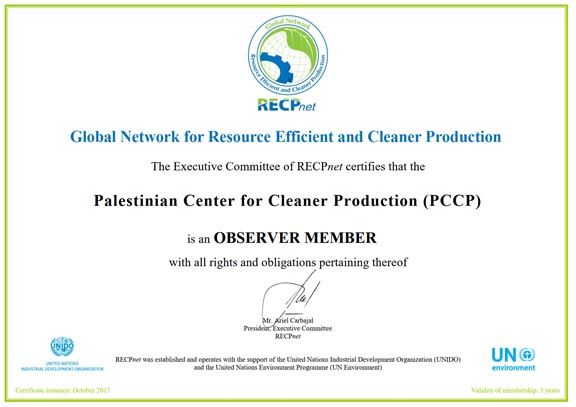The Center for Cleaner Production (CCP) is an initiative by Al-Quds University to catalyze advancing sustainable practices in industrial operations and fostering a transition to a circular economy. As a dedicated service-providing center, CCP stands at the forefront of sustainable development by bridging academia, industry, and global best practices in cleaner production and environmental management. The center is positioned to address pressing environmental challenges through practical solutions that align with sustainable consumption and production principles. Located in Jerusalem as part of Al-Quds University, the CCP facilitates networking with the University Business Center for Innovation, Technology, and Entrepreneurship (B-CITE), particularly in empowering youth in Jerusalem with skills for eco-innovation.
It is worth noting that the establishment of the Palestinian CCP was endorsed in 2017 by UNEP and UNIDO and was admitted as an observer member to RECPnet.


